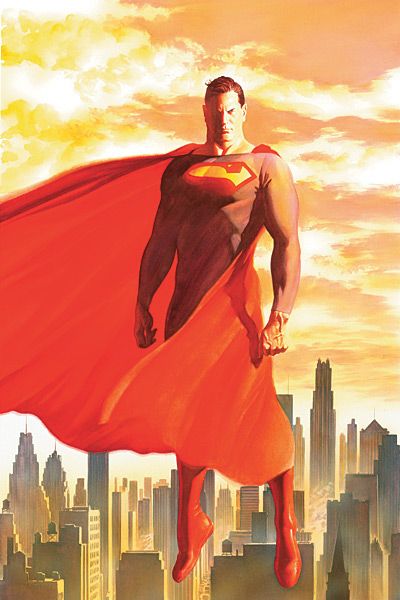Superman is one of the most difficult characters to write well. Or at least, he's perceived that way. I've heard writers complain that Superman is too powerful to make an interesting character, and his stories either lack dramatic tension because of it, or kryptonite is shoehorned into the story to provide a reason for Superman to seem vulnerable. But I've never understood that complaint. The drama in a Superman story doesn't derive from the question "will Superman survive the battle?" Rather, it's based on a more noble question: "How will Superman save _________ in time." You can fill in the blank with Lois Lane or Jimmy Olsen, America or the Earth, but the how is the interesting part. You know he will, just as you know that any other major comic book character will survive his or her battles. (Even without the benefit of Kryptonian DNA. The power of licensing surpasses even that of invulnerability.) But how he will do it makes or breaks the story. And, up until his final story, writer Kurt Busiek hasn't done a great job with the how.
Here, though, he nearly makes up for it. Here, he produces a story, with the primary help of artist Renato Guedes, which stands as tall as the better issues of Geoff Johns's "Action Comics." Here, Busiek takes the how question and explodes it with a contemporary spin on Silver Age madness. "Superman" #675 takes some of the best features of the Weisinger-era Superman -- Mon-El giving advice from his Phantom Zone prison, a revenge-driven super-scientist, a Galactic Golem (which isn't from that era as far as I know, but it seems like it would have fit right in) -- and combines it with the more human, moralistic concerns of the John Byrne incarnation. It's a difficult combination to pull off. The tendency for many writers is to add Silver Age elements whimsically, or worse: stoically. As if these icons from Superman's "Crisis"-altered past were either ridiculous plot contrivances or super-serious reminders of the character's legacy.
Busiek avoids both traps in this issue.
Instead, he plays it straight, but in an appropriately grand way. He has Mon-El spout lines like, "The control planetoid in its forehead! That's what's guiding its actions! Destroy it!" without a hint of irony, and yet it's exactly what's needed for the story presented here. This is a story about doing the right thing. About making sacrifices to save the planet. About trying to help the "villains," even while they are trying their best to destroy Earth. In short, it's a Superman story. One of the very good ones. And after a couple of years of long speeches by Arion and the Insect Queen, Busiek finally nails it, just as he's walking out the door.

